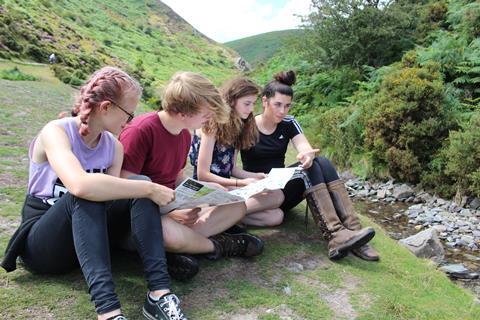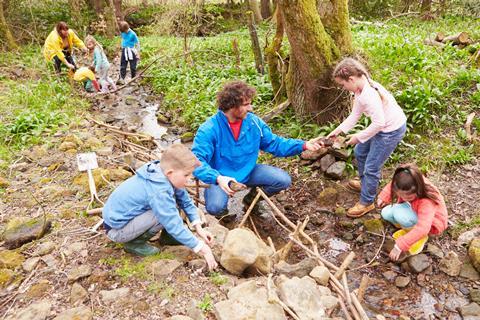The report suggests that practical fieldwork skills that pupils learn during outdoor learning experiences greatly improve their geography studies, with more young people than before choosing the subject for their GCSEs and beyond.

The Getting Our Bearings report looked at strengths and weaknesses in geography education in schools across the country and recommended ways for schools to build on successes and address issues to benefit pupils.
The report by Ofsted found that, since being included in the English Baccalaureate (EBacc), the number of pupils choosing to study geography at GCSE and A-Level had steadily increased and that the increase had largely come from groups which had not previously engaged well with the subject, including disadvantaged pupils, those from ethnic minorities and pupils with low prior attainment.
The researchers found that there had been a general improvement in the geography curriculum in schools, but also identified significant pressures on teaching of the subject, especially a shortage of specialist teachers.
“Classroom teaching is clearly important but there is nothing like practical, hands-on experience to really help cement learning.”
Andy Pratt, director of education at the Field Studies Council
The Field Studies Council (FSC), a leading environmental charity which champions outdoor learning and geography fieldwork, welcomed the findings that more pupils than before are choosing the subject, but also highlighted improvements that need to be made.
Andy Pratt, director of education at FSC, said: “We applaud the improvements in teaching geography highlighted by the report, recognising the professionalism and hard work of dedicated teachers. It is also fantastic to learn that the numbers of students selecting to study geography at GCSE and A-Level are on the increase.
“However, the report found that fieldwork was under-developed in almost all schools, and this is where organisations like the Field Studies Council can really help bolster the curriculum.
“We know from our own research and evaluation that good quality fieldwork is particularly effective at consolidating what pupils have learned in the classroom, as well as embedding invaluable soft skills like leadership, teamwork and resilience.

“Delivering good quality fieldwork is something individual schools often struggle with, but our centres around the UK have a range of courses and residential experiences that can support teachers to deliver every aspect of the curriculum.”
Andy went on to explain the importance of pupils enjoying education away from the desks, adding: “Classroom teaching is clearly important but there is nothing like practical, hands-on experience to really help cement learning.
“The analytical, problem-solving skills pupils can learn through geography fieldwork are the very skills we need to equip them with to nurture the next generation of environmental leaders and scientific thinkers.”
You can read the full report here.
More information about the Field Studies Council and how it can support teachers and pupils is available at: www.field-studies-council.org.










